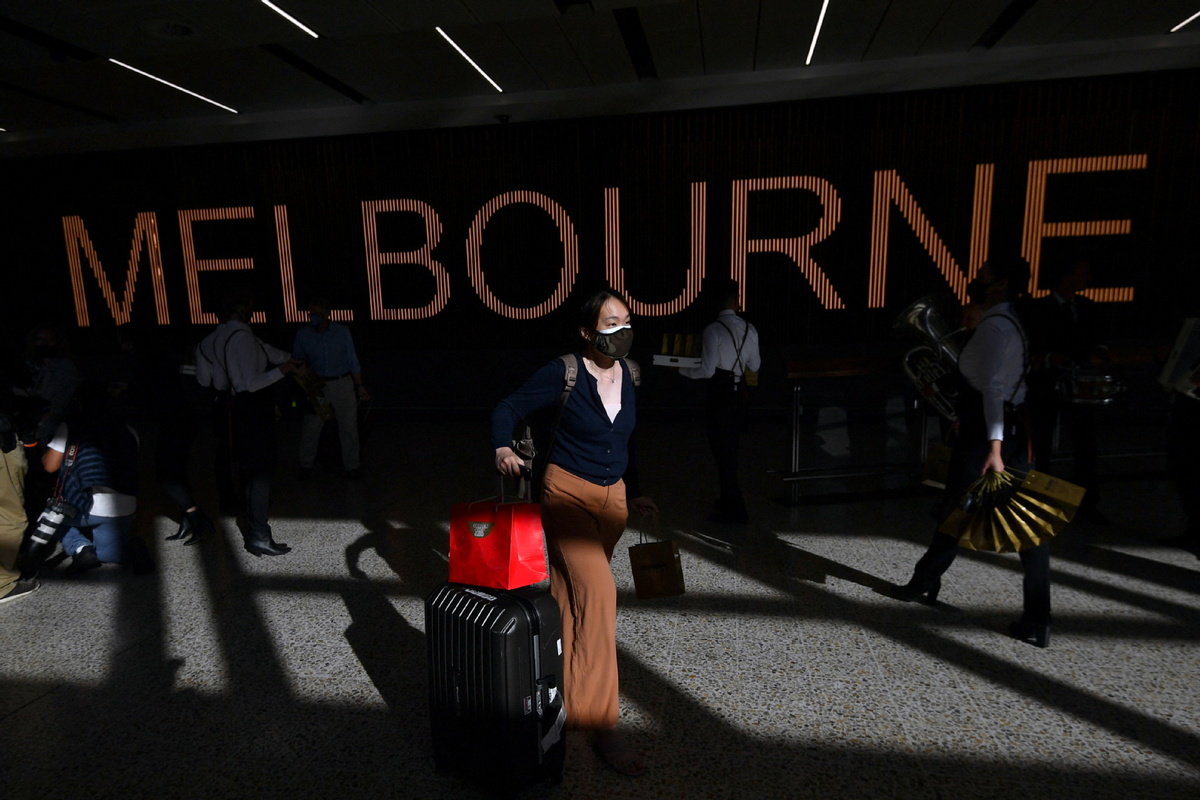Border reopening unlikely to deliver near-term recovery to tourism in Australia and New Zealand


As Australia and New Zealand are reopening their borders to fully vaccinated international visitors, few expect the tourism sector to bounce back to pre-COVID days in the near term.
Australia reopens its borders to vaccinated visitors on Feb 21, while New Zealand is expected to open up in stages.
Vaccinated citizens and visa holders travelling to New Zealand from Australia will be able to fly in from Feb 27 and quarantine at home for 10 days. Travelers from other parts of the world can return to New Zealand from March 13 and quarantine for 10 days.
Both countries were among the first to close their borders when the pandemic broke out in March 2020. The border closures are credited with keeping the number of COVID-19-related deaths to quite low levels.
As the borders reopen, observers do not expect a flood of tourists.
Margy Osmond, chief executive of the Tourism and Transport Forum, or TTF, said while the industry welcomes the government's decision, no one expects tourists to come "flooding back".
Chinese citizens are yet to fully resume international tourism, she told China Daily through TTF's media department, noting that "New Zealand will not be open to leisure tourism until later in the year. And these are our two biggest markets".
Osmond said: "The US still has a travel warning on Australia and there are still some (pandemic-related travel) issues with Europe. But we will sort these issues out."
Osmond said the initial focus will be on the youth market. She said since Australia closed its borders to international tourism two years ago, the sector has lost A$100 billion ($72 billion) plus "many, many jobs".
"Our industry has faced so many challenges over the last two years, but it is renowned for being resilient and I have every faith it will bounce back better and bigger than before. After all, Australia has so much to offer in terms of its natural beauty and assets not to mention our culture and our reputation for being a warm friendly nation," Osmond said.
According to TTF data, the international tourism market was worth around A$50 billion annually to the Australian economy.
Across the Tasman Sea, tourist operators in New Zealand were caught by surprise at Australia's decision to reopen its borders to vaccinated travelers.
Tourism Export Council of New Zealand's chief executive Lynda Keene said: "We hadn't expected Australia to set a date as early as Feb 21, so it's taken us by surprise."
She said in a statement to China Daily: "(Industry) operators … know there is a very high chance New Zealand will lose market share to Australia."
At the very least, New Zealand is expected to reopen its border in July to travelers from destinations that do not need a visa to enter the country, such as Australia and the United States.
New Zealand's Prime Minister Jacinda Ardern has said there was a "high-likelihood" that could happen earlier than July. From October, other travelers would probably be able to visit New Zealand as well.
The lack of certainty over dates could prompt airlines and travel companies to direct visitors to Australia rather than New Zealand over the next few months, Keene of Tourism Export Council said.
"The difference of five months to welcome back visitors could affect our tourism recovery for years as Australia throws everything at markets to welcome visitors back," she said.
The International Air Transport Association, or IATA, said it "greatly welcomed" the Australian move.
"The Asia Pacific region has been very cautious in its approach to border restrictions so far, but in recent weeks we have seen growing momentum towards relaxation of travel restrictions – in the Philippines, Thailand, and to some extent New Zealand," Philip Goh, IATA's regional vice president for the Asia-Pacific region said in a statement.
He urged other governments in the Asia-Pacific to look at similarly further easing their border restrictions.
Tim Soutphommasane, a professor of sociology at the University of Sydney, said the reopening of borders meant Australia "can re-engage with the world". But challenges remain, he cautioned.
Qantas Group's CEO Alan Joyce on Feb 7 said the reopening of borders to international tourists means Australia is "finally back open for business".
































